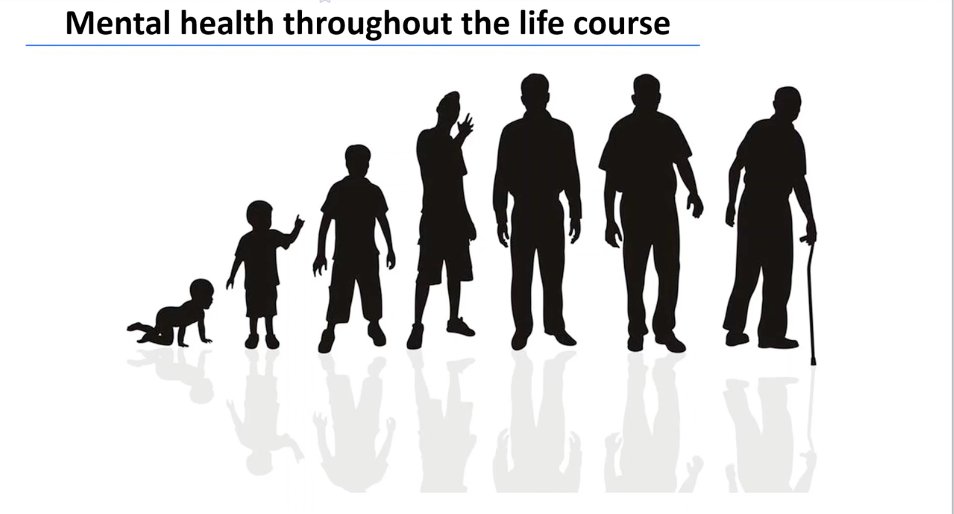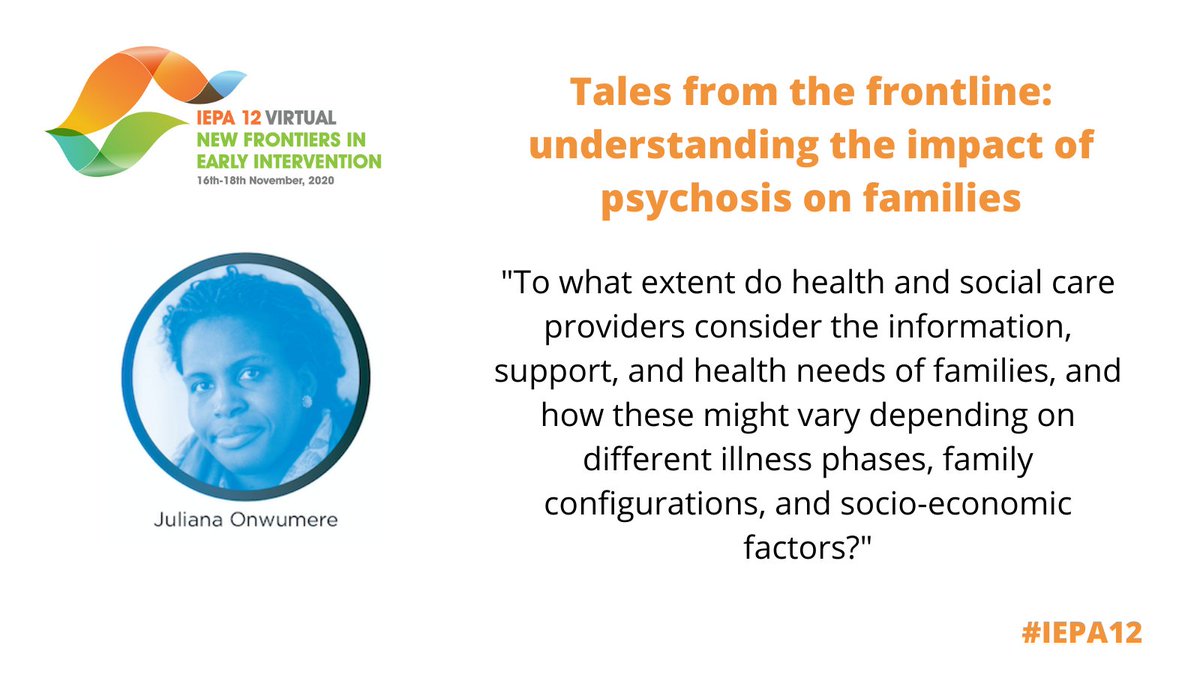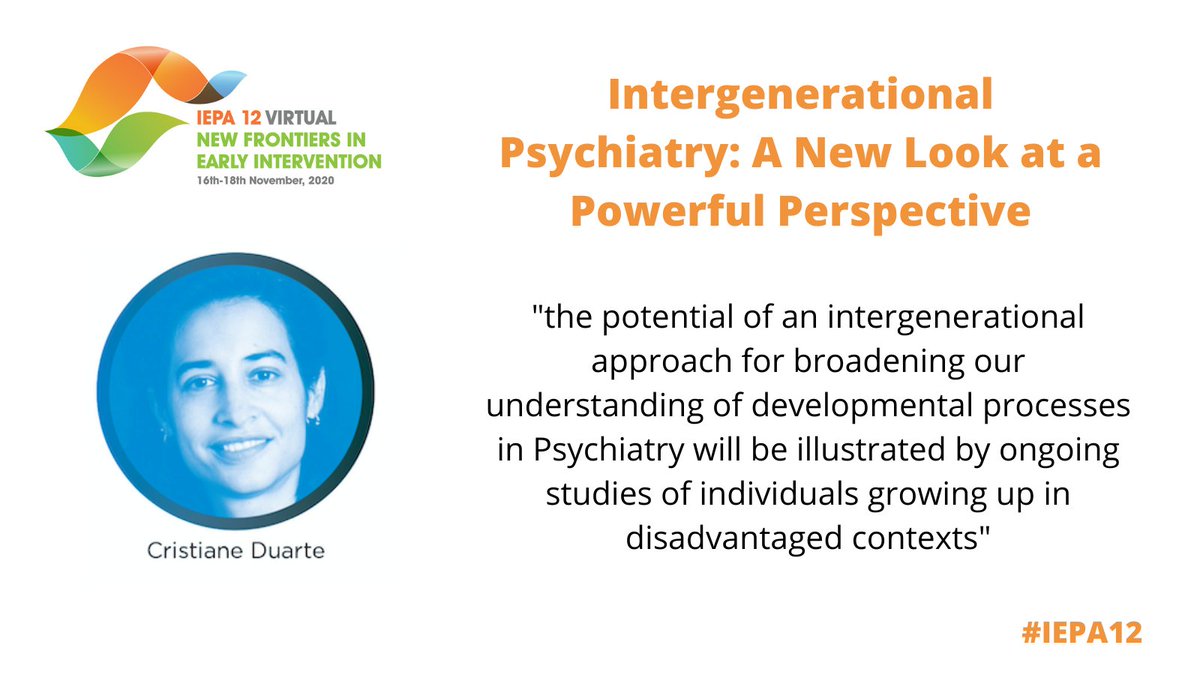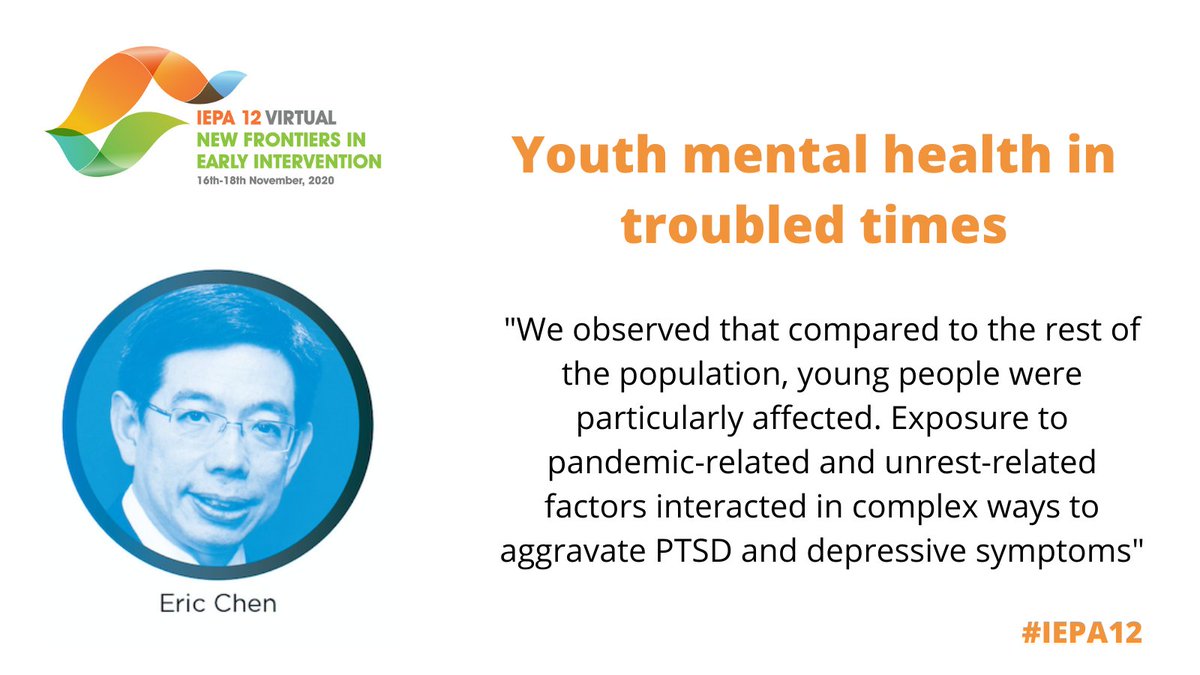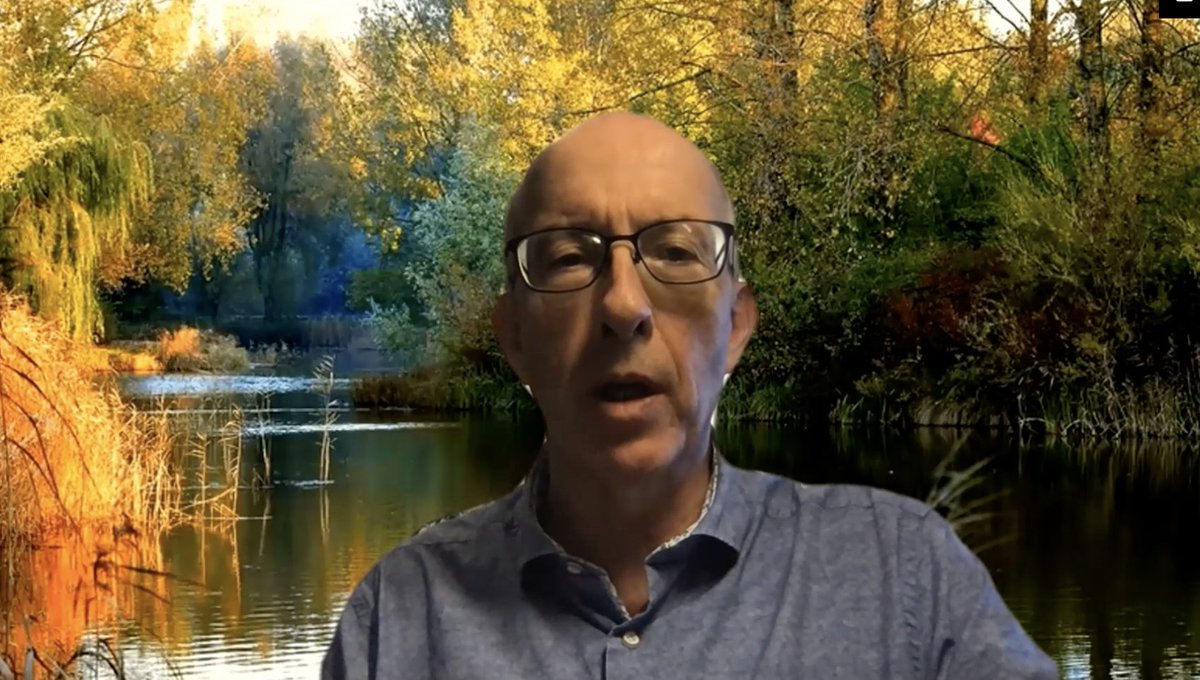
Welcome to this #IEPA12 keynote talk by Ricardo Araya @ArayaBaltra_R from @GMentalHealth who promises to tell us all about preventing emotional disorders from a global perspective 
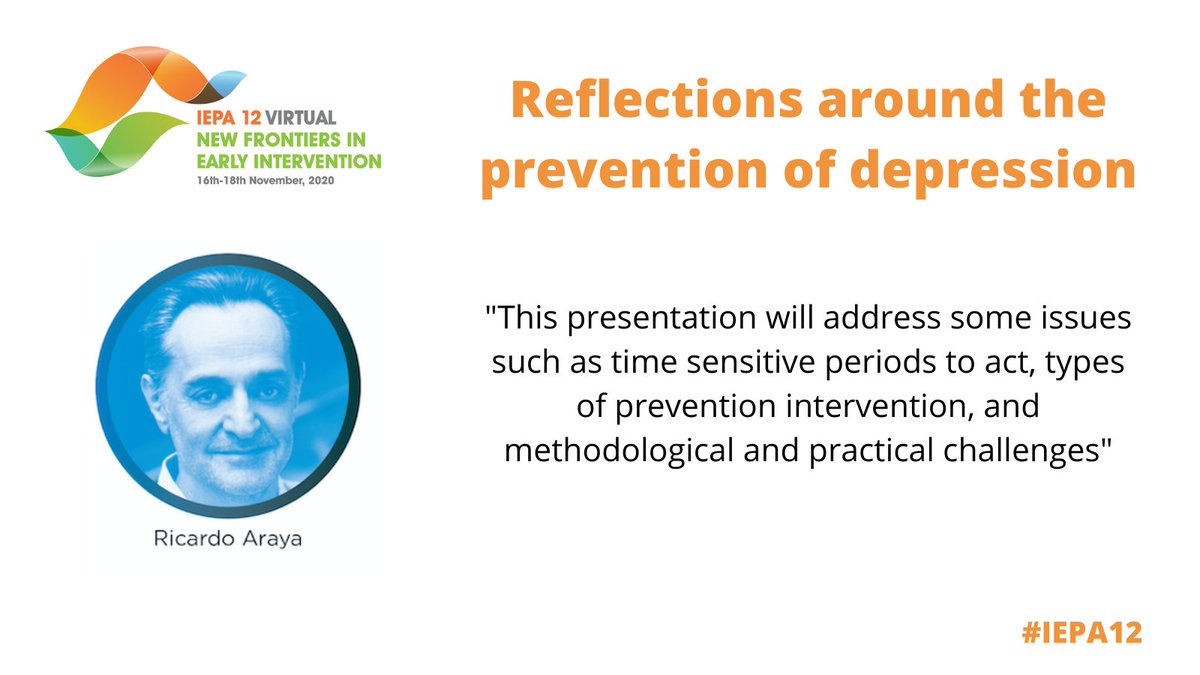
Araya starts by talking about the different types of prevention:
-primary prevention (most important) aims to prevent disease before it occurs
-secondary prevention aims to reduce impact of disease that’s already occurred
-tertiary prevention (not covered in this talk)
#IEPA12
-primary prevention (most important) aims to prevent disease before it occurs
-secondary prevention aims to reduce impact of disease that’s already occurred
-tertiary prevention (not covered in this talk)
#IEPA12

What causes depression? Are these causes modifiable? (risk factors)
When do we need to remove or counteract risk factors? (when known)
#IEPA12
When do we need to remove or counteract risk factors? (when known)
#IEPA12

We know very little about risk factors for emotional disorders, says Araya
Modifiable risk factors are most interesting (adverse circumstances & traumatic life events, psychological mechanisms)
Unmodifiable risk factors (gender, genetics)
#IEPA12
Modifiable risk factors are most interesting (adverse circumstances & traumatic life events, psychological mechanisms)
Unmodifiable risk factors (gender, genetics)
#IEPA12
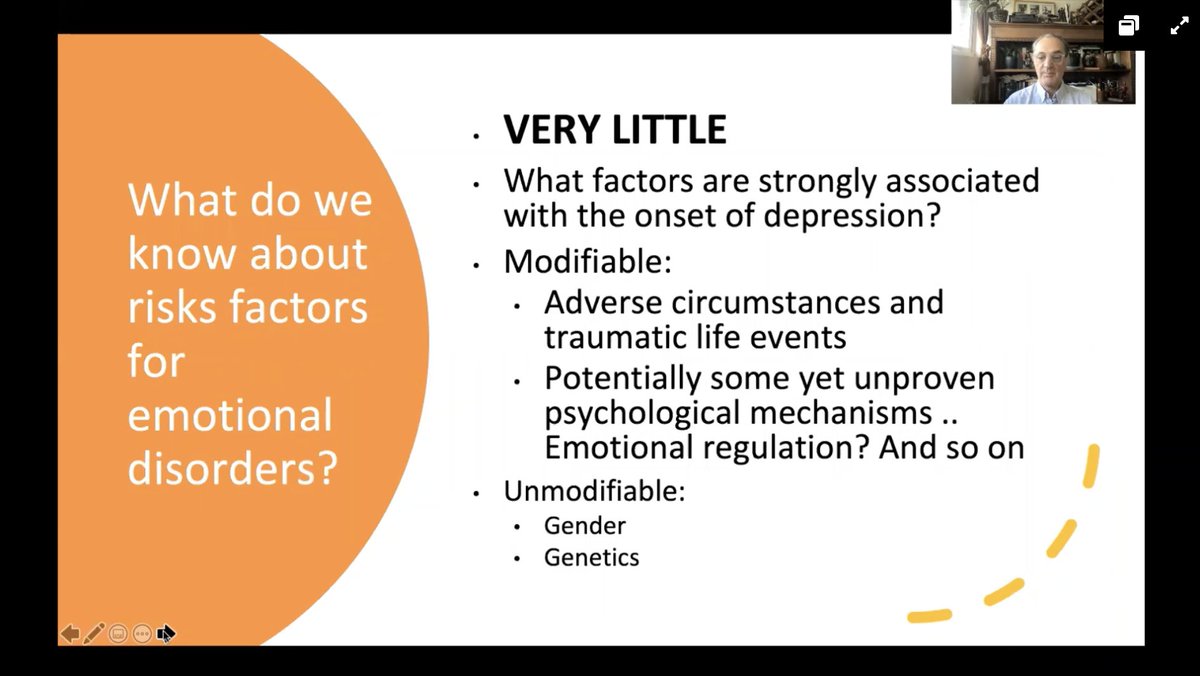
Even if we know risk factors that can be modified, it’s still difficult to know at what point during life cycles we intervene, e.g. during the first 1,000 days of life
#IEPA12
#IEPA12
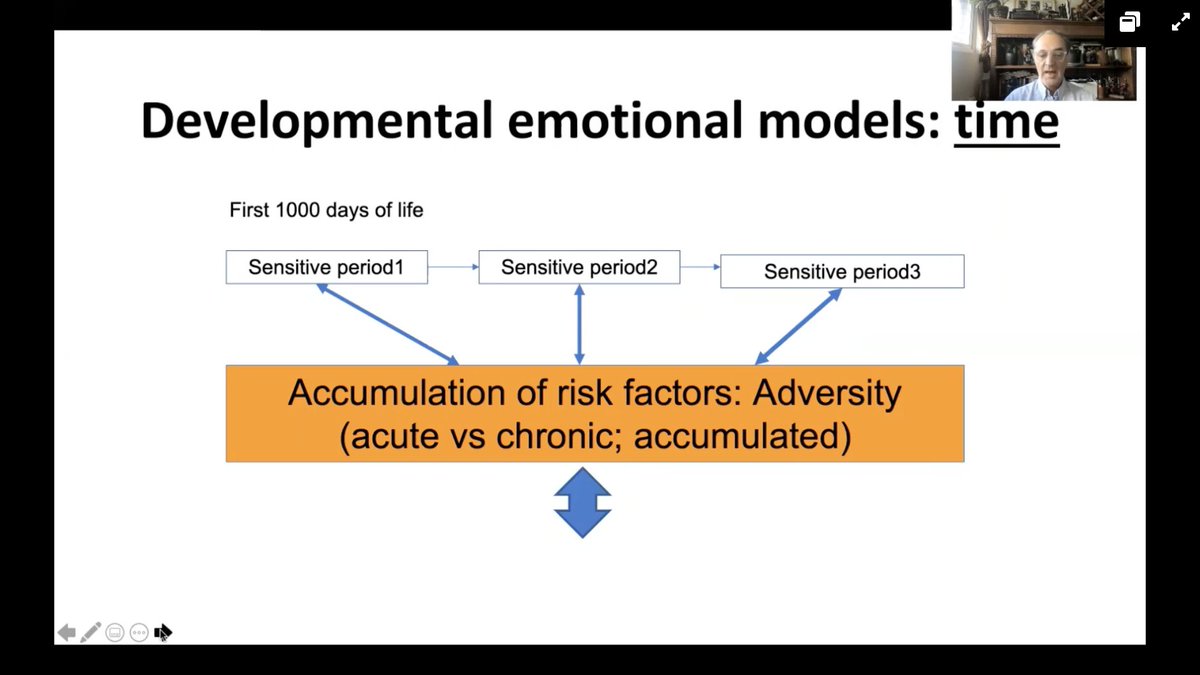
Different types of preventative interventions
-universal intervention (for the whole population, e.g. in schools)
-selective and indicative (targeted) interventions for high risk groups or those with subclinical symptoms
#IEPA12
-universal intervention (for the whole population, e.g. in schools)
-selective and indicative (targeted) interventions for high risk groups or those with subclinical symptoms
#IEPA12
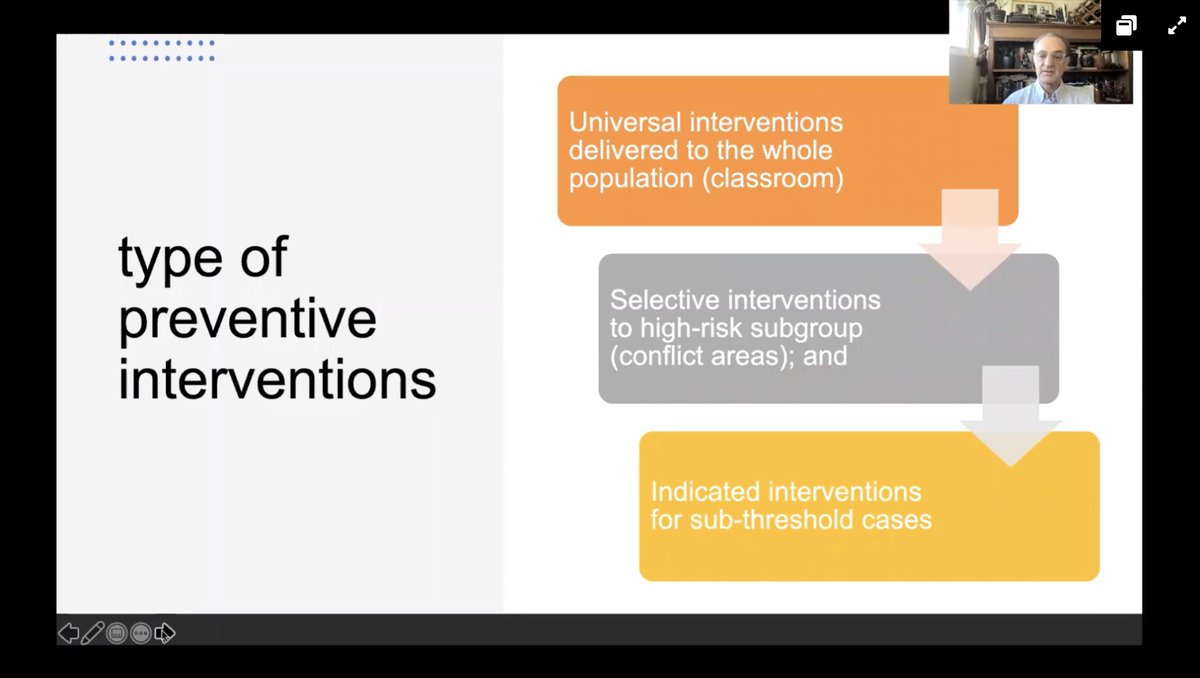
Araya developed a school intervention for 14-15 y/o children to improve mental health on low income in Chile. Schools didn’t want a targeted intervention that singled-out specific kids, so a universal intervention was developed. It didn’t work. #IEPA12
doi.org/10.1001/jamape…
doi.org/10.1001/jamape…
So they tried an indicated intervention instead for kids with high depressive symptoms, but again this did not work (Gaete BMC Psychiatry 2017) #IEPA12 
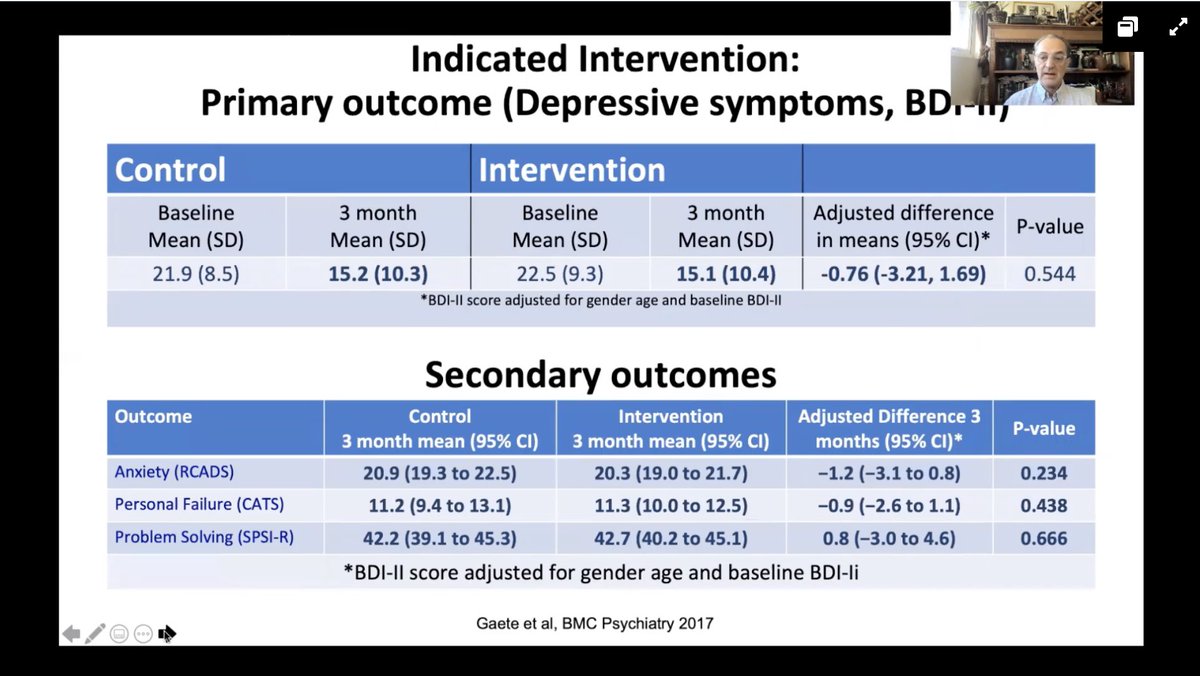
Heckman (early investment work) inspired Araya and his team to focus on younger children in their trials #IEPA12 
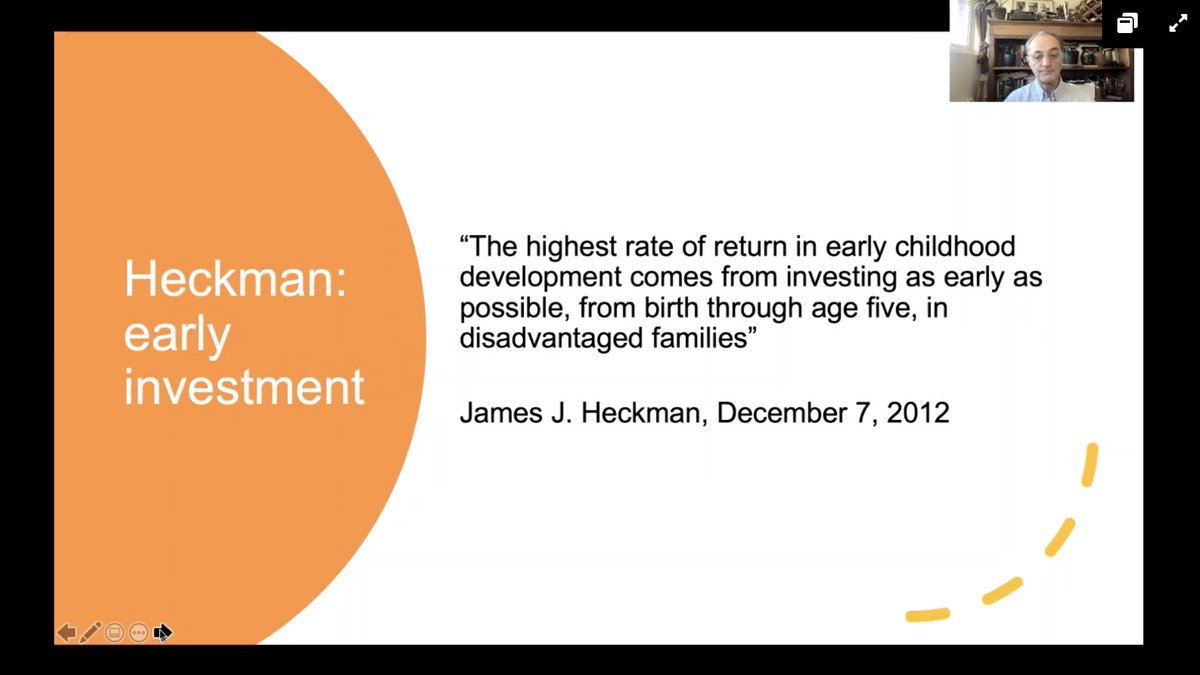
Early life and development of executive function #IEPA12
We need to intervene early if we are going to really help young people at risk of mental illness, says Araya
We need to intervene early if we are going to really help young people at risk of mental illness, says Araya

Smithers 2018 Nature Human Behaviour review on early cognitive skills gave hope that there is some evidence that non-cognitive skills might be associated with improved outcomes (but research is very poor quality) #IEPA12
nature.com/articles/s4156…
nature.com/articles/s4156…
This inspired Araya to develop a digital game for pre-school children (JAPI) - a new tool to stimulate cognitive (working memory and control inhibition) and non-cognitive (emotional recognition and social problem solving) skills #IEPA12 
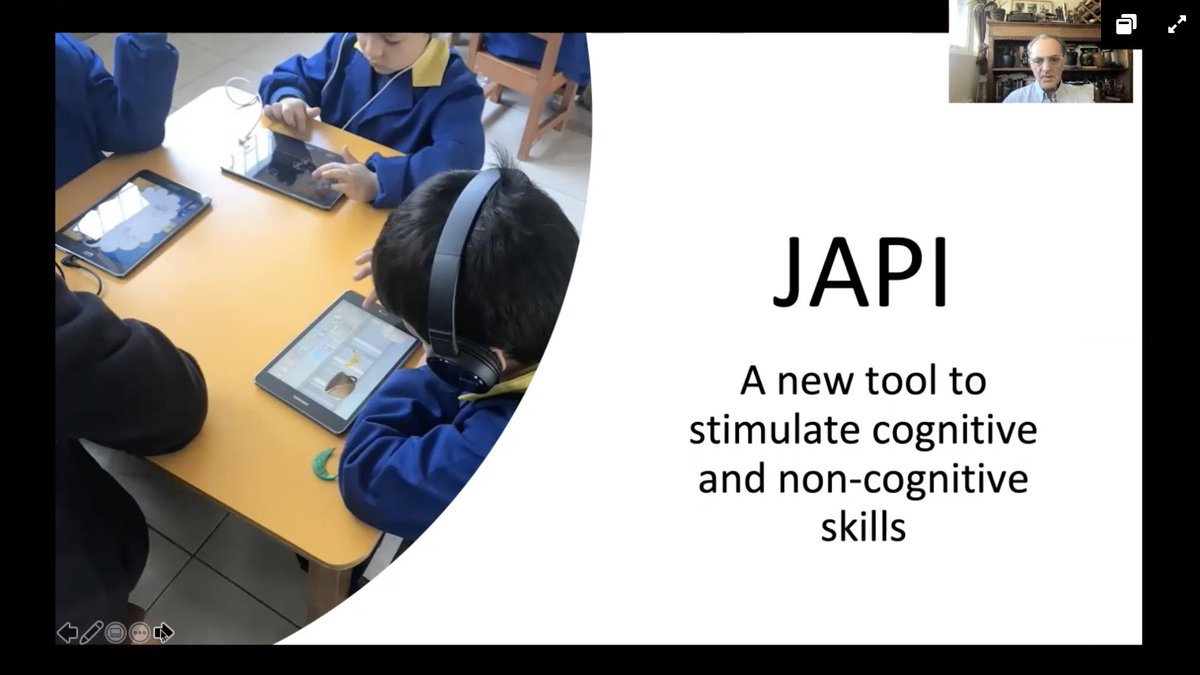
Araya's team piloted the JAPI app across 10 sessions, each 20-mins long that took place in the classroom #IEPA12 

At 14 y/o kids may already have a high load of emotional symptoms that mean it's too late for prevention, says Araya
-We must develop tools to counteract potential risk factors before symptoms ensue
-Digital tech may be a good solution
#IEPA12
-We must develop tools to counteract potential risk factors before symptoms ensue
-Digital tech may be a good solution
#IEPA12
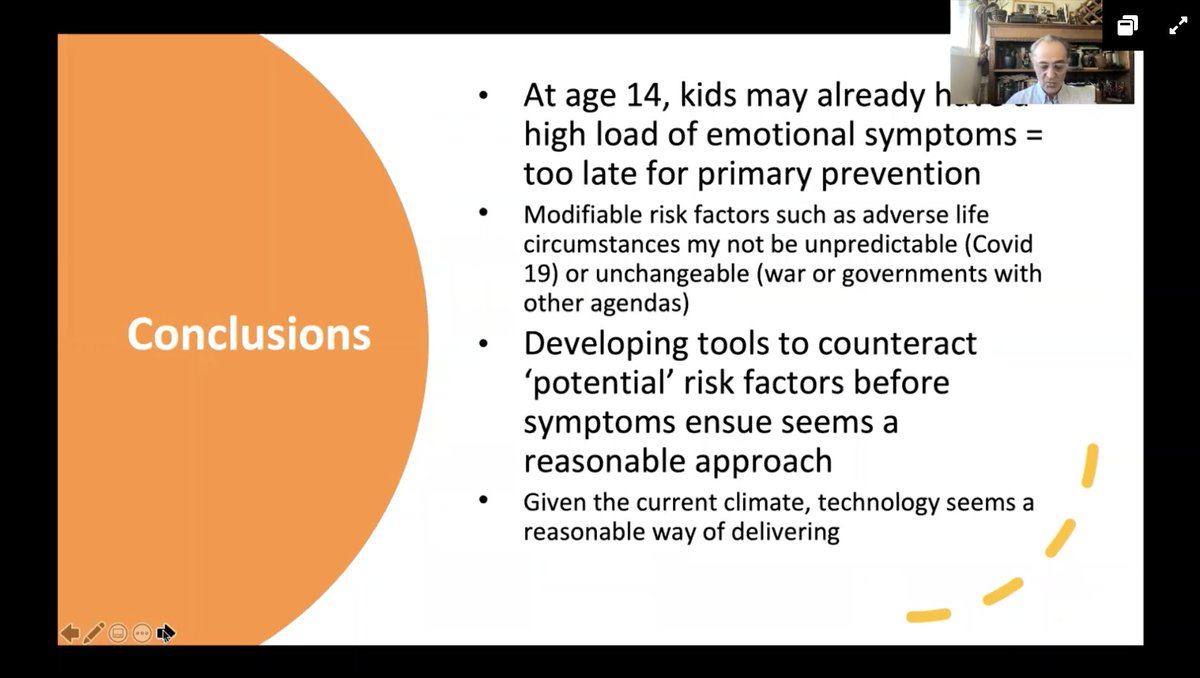
You tweeps might like to hear from Ricardo Araya @ArayaBaltra_R himself, so here he is speaking to me at the #MHNR2019 conference last year.
He talks about depression and global mental health in this short interview soundcloud.com/national-elf-s… #IEPA12
He talks about depression and global mental health in this short interview soundcloud.com/national-elf-s… #IEPA12
• • •
Missing some Tweet in this thread? You can try to
force a refresh





